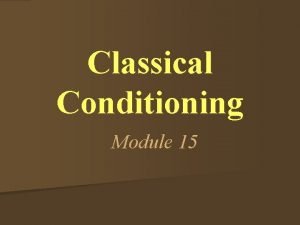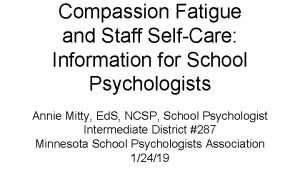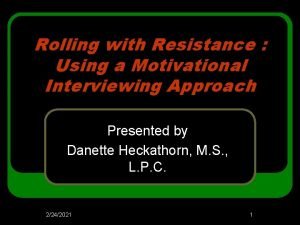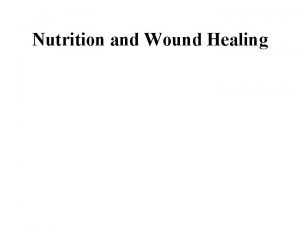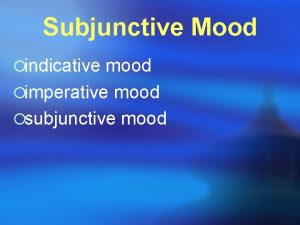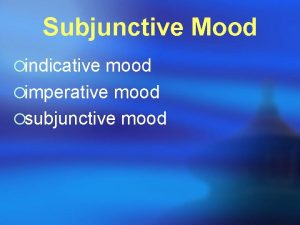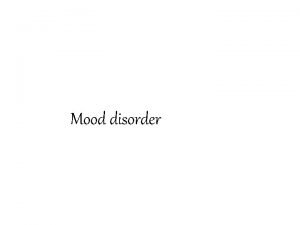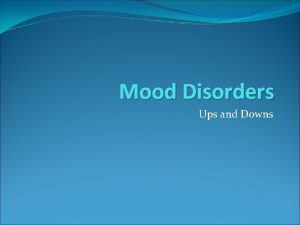relationships mood handout see the sheet Relationships are






- Slides: 6

relationships & mood: handout see the sheet: Relationships are important for our health as an introduction to some of the connections between relationships and psychological wellbeing

relationships & wellbeing: research ³ Argyle M The psychology of happiness London: Routledge, 1987 ³ Barnett PA et al Psychosocial functioning & depression: distinguishing among antecedents, concomitants, & consequences Psychol Bull 1988; 104: 97 -126 ³ House JS et al Social relationships & health Science 1988; 241: 540 -5 [2547] ³ Silove D et al Perceptions of general and specific therapist behaviors J Nerv Ment Dis 1990; 178: 292 -9 ³ Brown GW et al Self-esteem and depression: II & III Soc Psychiatry Psychiat Epidemiol 1990; 25: 225 -34 & 235 -43 ³ Hickie I et al Perceived interpersonal risk factors of non-endogenous depression Psychol Med 1991; 21: 399 -412 ³ Csikszentmihalyi M Flow: the psychology of happiness London: Rider, 1992 ³ Goleman D Emotional intelligence: why it can matter more than IQ London: Bloomsbury, 1996

relationships & mood: importance v research review on connection between depression & social support, attributional style, personality, dysfunctional attitudes, marital distress and coping style v little evidence of cognitive vulnerability to depression Barnett PA et al Psychosocial v marital distress and low social functioning & depression: distinguishing among antecedents, integration seem to be involved concomitants, & consequences in the aetiology of depression Psychol Bull 1988; 104: 97 -126

toxic to interpersonal competence childhood “affectionless control” toxic to interpersonal competence adult psychological suffering Rodgers B Reported parental behaviour and adult affective symptoms 1. Associations and moderating factors & 2. Mediating factors Psychol Med 1996; 26: 51 -61 & 63 -77

adult relationships can heal ¶ high quality relationships in adulthood can heal the negative effects on mood of earlier poor quality parenting ¶ conversely poor quality adult relationships can damage mood despite high quality parenting during childhood ¶ there is a danger too that poor parenting is a bit more likely to be associated with poor adult relationships because of damage to interpersonal competence Hickie I et al Perceived dysfunctional intimate relationships: a specific association with non-melancholic depressive subtype J Affect Disord 1990; 19: 99 -107 Palosaari UK et al Parental divorce, self-esteem & depression: an intimate relationship as a protective factor in young adulthood J Affect Disord 1995; 35: 91 -6

what keeps us afloat on life’s voyage! z the construction materials - genetics, aptitudes z how the boat was built early life experiences z major events on the voyage significant life events z the other boats around us - social support, relationships if some areas are weak z quality of our seamanship it’s all the more important appropriate coping skills to be strong in the others

